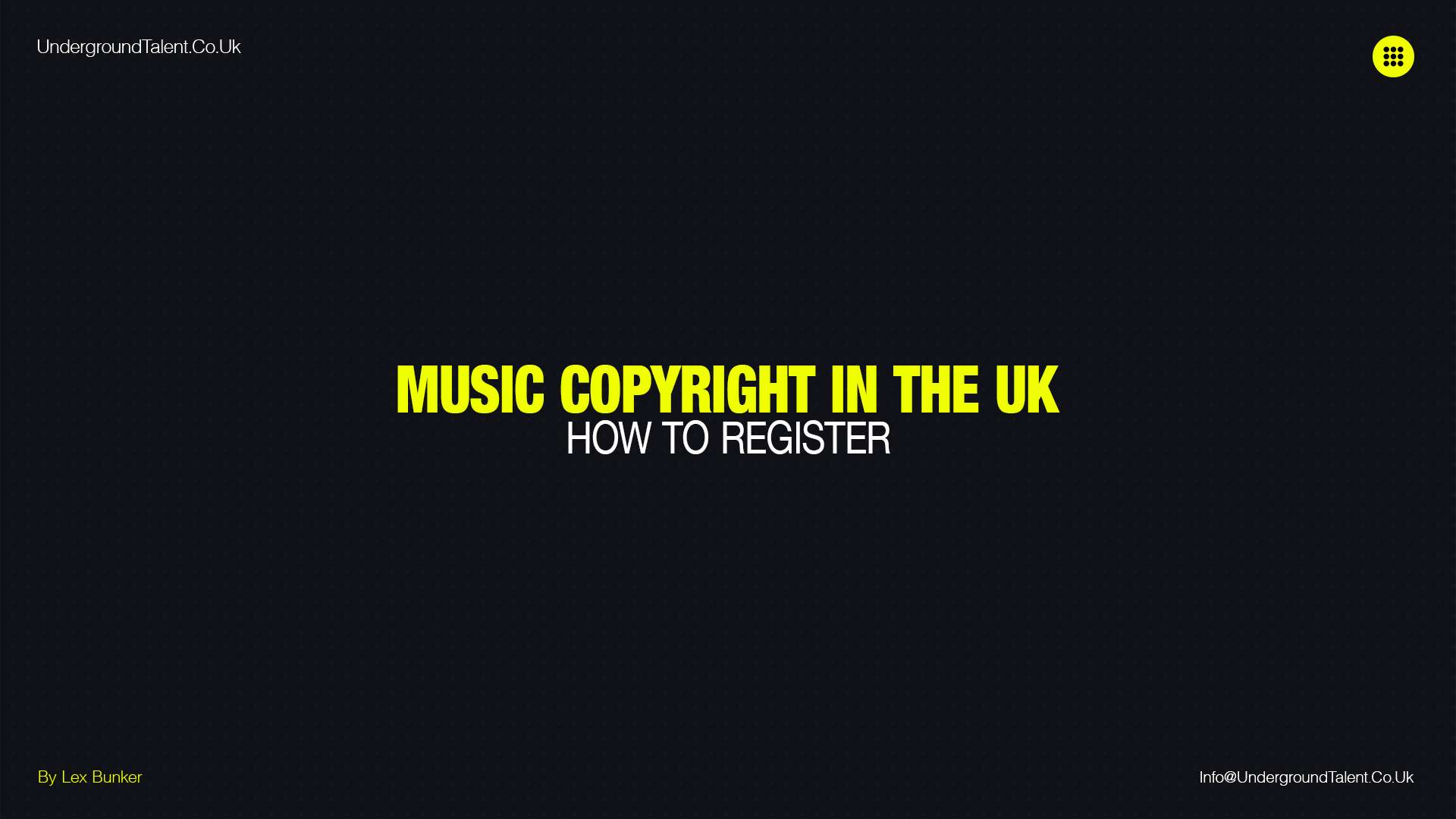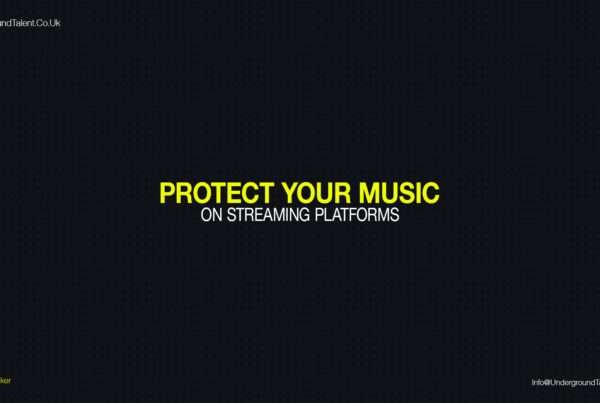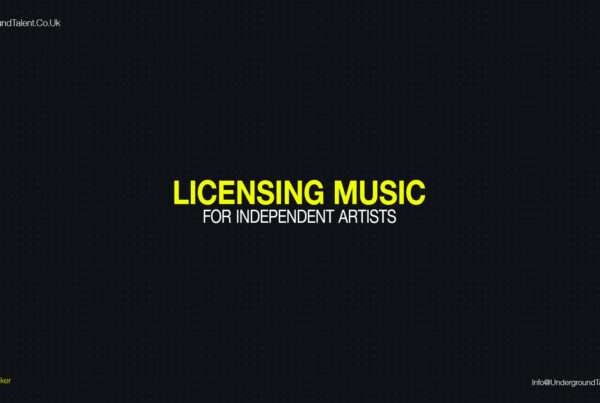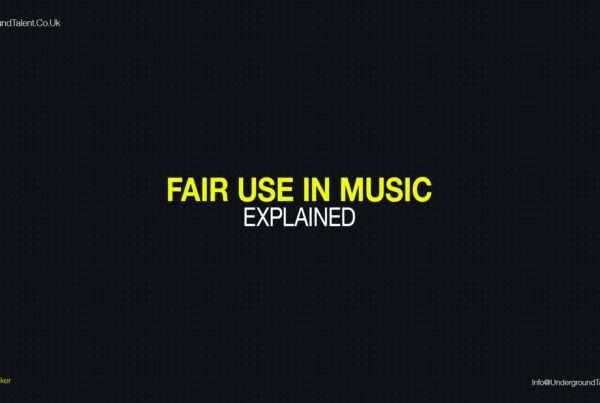How to Register Your Music Copyright in the UK?
To register your music copyright in the UK, finalize your work, document your creation process, and visit the UK Intellectual Property Office website. Fill out the necessary forms, upload your music, pay the registration fee, and keep a copy of your confirmation. This secures your legal ownership and protects your work.
Why Register Your Music Copyright?
Registering your music copyright provides legal protection, prevents unauthorized use, and ensures you earn royalties from your work.
- Legal Benefits
- Protection
- Earning Royalties
Legal Benefits of Registering Your Music
Registering your music copyright provides substantial legal benefits. It gives you official proof of ownership, which is essential if you need to enforce your rights in court. This legal protection ensures that your work is officially recognized, making it easier to resolve disputes and claim your rightful ownership.
Protection Against Unauthorized Use and Infringement
By registering your music copyright, you protect your work from unauthorized use and infringement. It enables you to take legal action against those who use your music without permission. This protection is crucial in maintaining the integrity and value of your creations, ensuring that you retain control over how your music is used and distributed.
Ability to Earn Royalties and Enforce Your Rights
Registration allows you to earn royalties from your music. It ensures that you are compensated when your work is used commercially, whether in streaming, broadcasting, or other media. Furthermore, having a registered copyright makes it easier to enforce your rights and claim any royalties owed to you. This financial benefit is vital for sustaining your career as a musician, providing a steady income from your creative efforts.
Copyright Laws for UK Music Creators
Overview of UK Copyright Laws Relevant to Musicians
UK copyright law provides musicians with the legal rights to control how their music is used. These laws ensure that creators have exclusive rights to reproduce, distribute, perform, and license their work. Copyright protection is automatic upon creation and does not require registration. This protection lasts for the creator’s lifetime plus 70 years after their death.
Key Legal Terms and Definitions Every Musician Should Know
- Copyright: The legal right granted to the creator of original work, allowing them to control its use.
- Infringement: Unauthorized use of copyrighted material, violating the rights of the copyright holder.
- Public Domain: Works no longer under copyright protection, free for public use.
- Fair Dealing: UK equivalent of “fair use,” allowing limited use of copyrighted works without permission under specific conditions.
Differences Between UK Copyright Laws and International Laws
UK copyright law shares similarities with international copyright standards, such as those outlined by the Berne Convention. However, there are differences in how certain aspects are handled:
- Duration: While the UK protects the creator’s life plus 70 years, some countries may have different durations.
- Fair Dealing vs. Fair Use: The UK’s fair dealing provisions are more restrictive than the U.S. fair use doctrine.
- Registration: Unlike in some countries where registration is required for enforcement, UK copyright protection is automatic.
Note: For more details on music copyright, check out “How to Copyright Your Music.”
How to Register Your Music Copyright in the UK
Registering your music copyright in the UK is a crucial step in protecting your creative work. Follow these detailed instructions to ensure a smooth registration process.
- Complete Your Work
- Finalize your music, including recordings, lyrics, and any sheet music. Ensure it’s ready for registration.
- Document Your Creation
- Keep detailed records of your creative process. This includes drafts, notes, and timestamps showing when and how you created your music.
- Visit the UK Intellectual Property Office Website
- Go to the UK Intellectual Property Office website. Navigate to the section on copyright registration.
- Fill Out the Registration Form
- Provide all necessary details about your work. This includes the title, type of work (e.g., song, instrumental), and information about the creators. Be precise and thorough to avoid delays.
- Upload Your Work
- Submit your completed work in the required format. Typically, this would be MP3 for recordings and PDF for sheet music.
- Pay the Registration Fee
- Complete the payment process for your registration. Fees can vary, so check the current rates on the UK Intellectual Property Office website.
- Receive Confirmation
- Keep a copy of your registration confirmation. This will serve as your official proof of copyright.
Necessary Forms and Where to Find Them
Registration Forms: The necessary forms for registering your music copyright can be found on the UK Intellectual Property Office website. Ensure you download the correct form relevant to your type of work.
Supporting Documents: Alongside the main registration form, gather any supporting documents that validate your ownership and the creation process of your music.
Tips for Completing the Registration Accurately
Double-Check Information: Ensure all details are correct and complete before submitting the form. Inaccuracies can lead to delays or rejections.
Use Clear Titles: Provide clear and specific titles for your works. This helps in precise identification and avoids confusion.
Keep Copies: Keep copies of all submitted forms and supporting documents for your records. This will help in case of any future disputes or verification needs.
Seek Professional Help: If you are unsure about any part of the process, consider seeking professional advice. Lawyers or copyright experts can provide valuable assistance to ensure everything is done correctly.
You can efficiently register your music copyright in the UK, ensuring your creative efforts are legally protected. For comprehensive insights into the Music Modernization Act and its impact, read the Music Modernization Act on Copyright Laws.
Copyright Registration Process for Musicians
Registering your music copyright is essential to protect your creative work.
Start by finalizing your music, including recordings and lyrics. Next, visit the UK Intellectual Property Office website to access the registration forms. Fill out these forms with accurate details about your work and creators.
Upload your music in the required format, usually MP3 for recordings and PDF for sheet music. Complete the payment process and submit your application. You will receive a confirmation, which serves as your official proof of copyright.
Expected Timelines for Registration and Receiving Confirmation
After submitting your application, you can expect to receive confirmation within a few weeks. The entire process typically takes around 6-8 weeks, depending on the workload of the Intellectual Property Office.
Common Mistakes to Avoid During Registration
Avoid common mistakes by double-checking all information before submission. Ensure your music files are in the correct format and that all details are accurate. Missing information or errors can delay the registration process. Keep copies of all submitted documents for your records. If unsure about any step, seek professional advice to ensure your application is correct and complete.
Protecting Your Songs Online
Strategies for Safeguarding Your Music on Digital Platforms
Protecting your music online is crucial to prevent unauthorized use and ensure you receive proper credit and compensation. First, always register your music copyright to establish legal ownership. Next, distribute your music through reputable platforms that offer protection against unauthorized downloads and sharing. Utilize watermarking to embed unique identifiers in your music files, making it easier to track and prove ownership. Consider releasing only partial versions or lower-quality files for public distribution, reserving the full versions for authorized platforms.
Tips for Using Digital Rights Management (DRM) Tools
Digital Rights Management (DRM) tools are essential for protecting your music online. Use DRM software to control how your music is accessed and distributed. This software can limit the number of devices on which your music can be played, restrict copying, and prevent unauthorized sharing. Some popular DRM tools include Apple FairPlay, Microsoft PlayReady, and Adobe Content Server. These tools help ensure that only paying customers can access your music, protecting your revenue stream.
How to Monitor the Internet for Unauthorized Use of Your Music
Regularly monitor the internet to catch unauthorized use of your music. Set up Google Alerts with your song titles and artist name to receive notifications when your music appears online. Use services like TuneSat and Audible Magic to scan radio, TV, and online platforms for your music. If you find unauthorized use, take action by sending a DMCA takedown notice to the infringing website or platform. This helps ensure your rights are enforced and your music remains protected.
Note: Learn more about protecting your music and performance rights in Performance Rights Organizations: Everything You Need to Know.
Music Copyright FAQs: Answers to Common Questions About Music Copyright
What is music copyright?
Music copyright protects your original musical works, including lyrics, melodies, and recordings. It gives you exclusive rights to reproduce, distribute, and perform your music.
How long does music copyright last?
In the UK, the copyright for music lasts for the creator’s lifetime plus 70 years after their death.
Do I need to register my music to get copyright protection?
In the UK, copyright protection is automatic upon creation. However, registering your music can provide legal advantages and proof of ownership.
Can I use someone else’s music in my work?
You need permission or a license to use someone else’s music. Using it without permission can lead to copyright infringement.
What to Do If You Discover Your Music Has Been Infringed
If you find that someone is using your music without permission, take immediate action. First, gather evidence of the infringement, such as recordings, screenshots, and URLs. Contact the infringer with a cease and desist letter, asking them to stop using your music and to compensate you if necessary. If this does not resolve the issue, file a DMCA takedown notice to have the content removed from the offending platform. For serious cases, consider consulting a legal professional to explore further legal action.
How to Update Your Copyright Information If Needed
If you need to update your copyright information, such as changing ownership details or correcting errors, contact the UK Intellectual Property Office. Provide the necessary documentation to support your changes, such as proof of ownership or legal agreements. It’s important to keep your copyright information up to date to ensure you maintain legal protection and can enforce your rights effectively.
Note: For debunking common myths about music copyright, see Music Copyright Myths Debunked.
Conclusion
Registering your music copyright is crucial for protecting your creative work and ensuring you receive fair compensation. By taking the time to register your music, you secure legal ownership and gain the ability to enforce your rights. This process helps you prevent unauthorized use and claim royalties from your music.
I encourage all musicians to take proactive steps to protect their work. By following the steps outlined in this guide, you can confidently navigate the copyright registration process and safeguard your artistic creations.
Please share your experiences with registering music copyrights or ask any questions you might have. Your insights and queries can help others in the community protect their music effectively.
Additional Resources
- Mixing Electronic Music: Fundamentals and Objectives
Electronic Music Promotion – Unlock Massive Growth with Hypeddit
Producing Techno? Get Your Free Sample Packs.
Dive into electronic music production with our newly released “Free Techno Tools V1” and “Free Techno Tools V2” sample packs. These packs are full of high-quality sounds that will add a professional touch to your tracks. If you’re looking to expand your sound library, these free sample packs are perfect for every techno fanatic. Click on the links below to access these fantastic resources and elevate your production game today!
Connect With Us.
Join our vibrant community for more wisdom and updates:
And Always Remember…
Have Fun & Be Creative!





